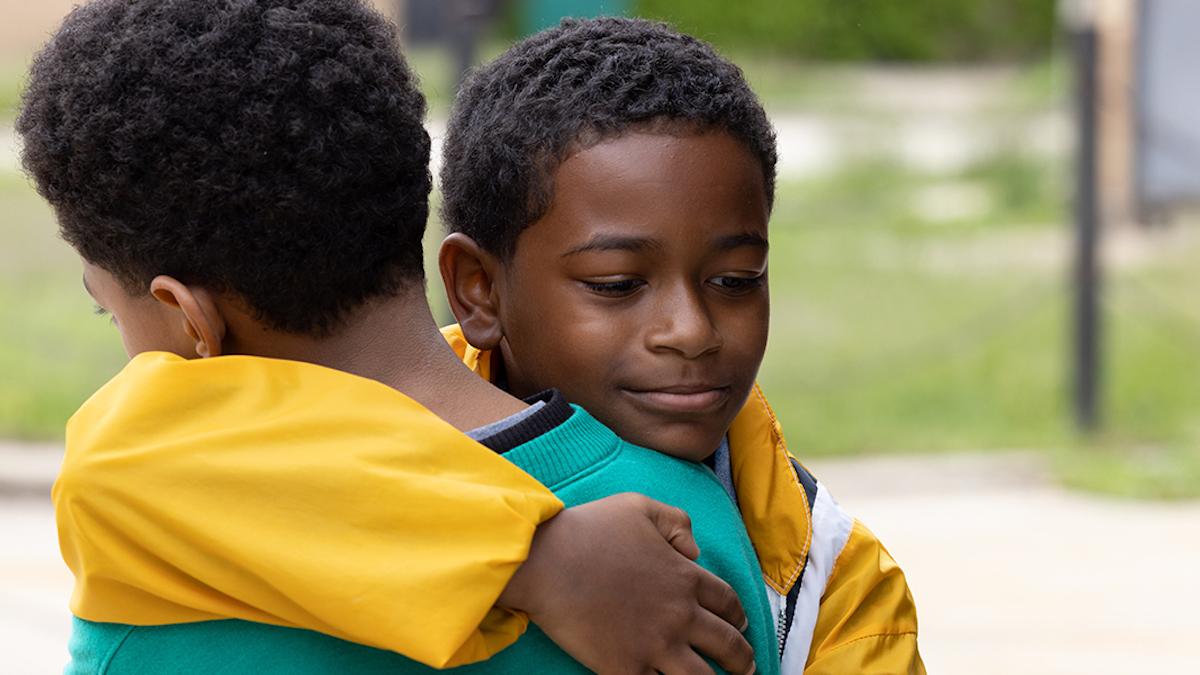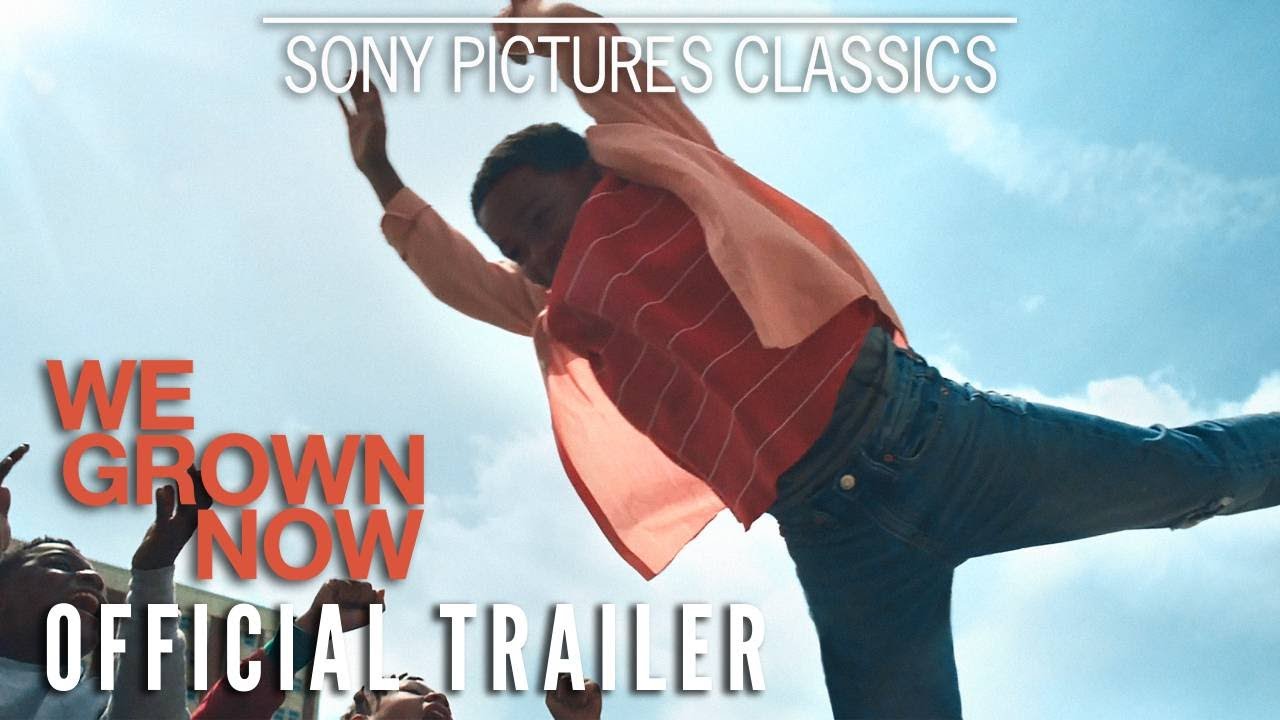Followed by a discussion with director Minhal Baig.
"An unassuming character study set to poetic rhythms makes for an empathetic study of Black life, full of resolve." - Robert Daniels, Screen International
"Baig’s vision makes WE GROWN NOW sing in a way that is incomparable. Everything that makes a riveting movie is on display and at its very best here." - Nadir Samara, Screen Rant
Wednesday, September 4, 6:00 p.m. | Join the Independent Film Alliance (IFA) Chicago for a screening of WE GROWN NOW (2023, USA, 93 min., in English / Format: Digital), followed by a discussion with director Minhal Baig. Their program "In Focus With…." is a series of intimate conversations with nationally known, independent filmmakers, producers, and entrepreneurs. Designed to cultivate knowledge, transparency, and insight into the business and entrepreneurial nature of filmmaking, the series has featured Academy-Award winner Matthew A. Cherry, Academy-Award nominees Peter Saraf and Diane Quon, George Tillman Jr., Sam Bailey, Daniel Willis, Kris Rey, and others. IFA Chicago is a non-profit organization that provides the community, resources, and programs needed to build a diverse and sustainable industry of independent content creators here in Chicago. Learn more at ifachicago.org
 In WE GROWN NOW it is 1992 in Chicago. Michael Jordan has solidified himself as a champion, and wide-eyed and imaginative best friends Malik and Eric traverse the city, looking to escape the mundaneness of school and the hardships of growing up in the Cabrini-Green housing projects. Their unbreakable bond is challenged when tragedy shakes their community. Directed by Chicago filmmaker Minhal Baig, the Chicago Tribune’s 2023 Film Person of the year, and hailed by critic Robert Daniels as “an unassuming character study set to poetic rhythms that makes for an empathetic study of Black life, full of resolve,” WE GROWN NOW is a delicate portrait of coming-of-age.
In WE GROWN NOW it is 1992 in Chicago. Michael Jordan has solidified himself as a champion, and wide-eyed and imaginative best friends Malik and Eric traverse the city, looking to escape the mundaneness of school and the hardships of growing up in the Cabrini-Green housing projects. Their unbreakable bond is challenged when tragedy shakes their community. Directed by Chicago filmmaker Minhal Baig, the Chicago Tribune’s 2023 Film Person of the year, and hailed by critic Robert Daniels as “an unassuming character study set to poetic rhythms that makes for an empathetic study of Black life, full of resolve,” WE GROWN NOW is a delicate portrait of coming-of-age.
Awards & Nominations
Winner - City & State Award, Chicago International Film Festival
Winner - Audience Choice Award, Chicago International Film Festival
Winner - Shawn Mendes Foundation Changemaker Award, Toronto International Film Festival
Nominee - Best Feature, Film Independent Spirit Awards
5 QUESTIONS WITH MINHAL BAIG
(Interview from March/April 2024 Gazette)
WE GROWN NOW is—body and soul—a Chicago story. As a Chicagoan, and the writer and director of the film, how and why did you approach positioning the city—from Cabrini-Green, to the “L”, to the Art Institute—as a landscape and a character itself?
I was born and raised in Chicago. In writing this movie, I spent a lot of time interviewing and speaking with former residents of Cabrini-Green. Many of them spoke about how Cabrini-Green was a neighborhood that felt so specific and separate from the city, yet also part of a larger Chicago that people were familiar with at the same time. One resident I interviewed told me about how she would play hooky from school to go to the beach, or even just downtown to escape the neighborhood. That story resonated with me and ended up inspiring the sequence of the boys playing hooky from school.
I wanted to revisit familiar Chicago places—like the Art Institute—and re-contextualize them, from the perspective of two young Black boys growing up in Cabrini-Green. The boys walk past the paintings that we—as an audience—have seen and experienced before. The painting that engages them—Walter Ellison’s Train Station—speaks to the Great Migration that their own families participated in and experienced. This painting resonates with the boys more deeply than the other works do because it speaks to their shared cultural experience, from the perspective of a Black artist. This scene is not only an homage to FERRIS BUELLER’S DAY OFF—I really wanted to present this differently. The previous two paintings are more familiar to audiences, but the third isn’t—and that's the one that captures the boys’ attention.
Growing up, each of these locations has its own special meaning to me. I remember getting lost for hours inside of the Art Institute as a child, all of the school field trips there and seeing paintings I’d only seen before in books in person for the very first time. I remember getting on the wrong train after school one day and heading toward Chinatown instead of Rogers Park. These were formative memories for me as a child and I wanted to place them in this film as formative for the boys
You've noted this is a personal film for you, and an exploration of the definition of home. What do you hope audiences will consider regarding their definitions of home after they have seen WE GROWN NOW?
For many Cabrini-Green residents, moving out of the neighborhood and the high-rises was not an easy decision. The high-rises had an incredible sense of community. For children, especially, this was the only place they had ever known as home. For the older generation that participated in the Great Migration, they had been through a version of all of this before. I wanted to share what leaving meant to each family member—for Anita, who left the South behind, for Dolores, who grew up in one place and raised her own kids in another, and for Malik and Eric, for whom Cabrini-Green is where they expected to live their whole lives.
The audience doesn’t personally have to have lived in public housing to understand how important of a transition this is. Leaving a neighborhood and saying goodbye to family and friends is a transformative moment in anyone’s life. There’s another part, too, where people learn to define what home means for them—if it’s not where they grew up as a child, it’s the community they’re building right now and the roots they’re putting down, wherever that may be.
What is one piece of advice you'd give to an emerging filmmaker?
I would share the same advice to an emerging filmmaker that I’ve shared with my former students: Write something that will change your life. That is where you begin. In making WE GROWN NOW, I underwent a personal transformation. Making the movie was a healing experience as I came to understand and process my own difficult feelings over losing a parent, moving away from home, and returning to a place that felt different than how I remembered it as a child. I am at a point in my career where I can only engage with stories that I completely love, that I'm endlessly curious about and challenge me to grow not only as an artist but as a human.
What is a memorable moviegoing experience you've had?
Last year, I watched THE SHINING in 35mm at The Metrograph and discovered that two women sitting in the row next to me had never seen the film before. One held her hands over her eyes almost the entire time. This experience reminded me of the importance of the communal aspect of moviegoing—there really isn’t anything like seeing a film in a theater with other people.
What film do you watch again and again?
This past year, I watched Michael Mann’s HEAT too many times to count because I was working on a crime-thriller TV show but one of my favorite films to rewatch is Tarsem Singh’s THE FALL, a stunning visual experience from start to finish.
The Film Center is ADA accessible. This presentation will be projected without open captions. The theater is hearing-loop equipped. For accessibility requests, please email filmcenter@saic.edu



